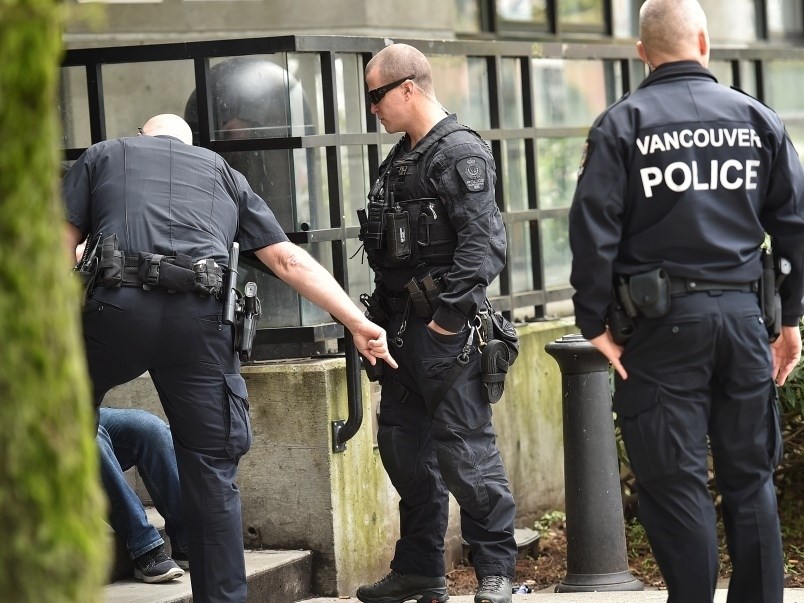A Vancouver police board member’s push to immediately launch a public consultation process regarding the Vancouver Police Department’s revised “street check” policy will likely not occur until next year, if at all.
Rachel Roy requested Thursday that the board — not the department — collect feedback over the next three months from community groups and those people who continue to be stopped by police.
“What I want to see is a formal public discussion about the new street check policy and how it’s actually impacting racialized communities, and how we can improve the dialogue between the department and affected communities,” said Roy, before the board voted 4-2 to defer her motion to its governance committee.
Roy wanted to hear from the public in advance of a promised department-led review of its new street check policy. A report is scheduled to be released to the public in February 2021.
She argued that hearing from the public now would complement the department’s report. But other board members, including Patricia Barnes, said it was best to wait for the report and examine the findings, which will include data.
“I think we all agree that there should be some public consultation done separately from the Vancouver Police Department — I don’t think that was in question,” said Barnes, noting the board’s governance committee would be best to ensure a proper process is in place to collect public feedback.
But no timeline was given Thursday when or if such feedback would occur.
A street check, as defined by the VPD, is when an officer encounters someone believed to be involved in criminal activity, or a suspicious circumstance and documents the interaction.
The department revised its street check policy in January to meet the B.C. government’s new guidelines and standards for all police departments regarding the practice of stopping and checking citizens.
The policy makes it clear that an officer cannot stop someone randomly or based solely on “an identity factor” such as race, social or economic status, religion, ancestry and sexual orientation.
Since the implementation of the new policy, the number of street checks in Vancouver has decreased by 90 per cent, according to a separate police report that went before the board Thursday.
Roy acknowledged the decrease in checks, but said it was the remaining 10 per cent of people stopped that she wants to hear from, with her request supported by the B.C. Civil Liberties Association and Union of B.C. Indian Chiefs, which have repeatedly called for a total ban on the practice.
Mayor Kennedy Stewart, who doubles as chairperson of the police board but recused himself from discussion around Roy’s motion, has also called for an end to street checks.
In July, city council was unanimous in supporting Stewart’s call to abolish street checks. The public heard Thursday the board and council will meet Oct. 5 to discuss the issue further, although banning street checks would be a board decision.
Roy’s motion comes after almost two years of debate in the community and several reports — independent and within the VPD — that examined whether street checks are discriminatory towards a certain race of people.
The reports were prompted by data police posted on its website in 2018 that showed an overrepresentation of Black and Indigenous people being stopped by police between 2008 and 2017.
Of 97,281 checks, 15 per cent (14,536) were of Indigenous people and more than four per cent (4,365) of Black people. Indigenous people up just over two per cent of the population in Vancouver, and Black people less than one per cent.
In the VPD’s review of street checks in 2018, the report concluded it was “unrealistic and overly simplistic to expect racial and gender populations to align uniformly with crime data.”
Meanwhile, the City of Vancouver is hosting a virtual town hall Sept. 24, where staff will provide a response to “community recommendations for addressing anti-Black racism and discuss our next steps together,” according to a news release.
@Howellings



